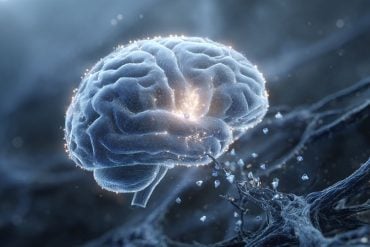Summary: New research shows that running a marathon can cause a temporary reduction in brain myelin, the fatty substance that insulates neurons and supports efficient communication. This decrease, observed in regions related to motor coordination and sensory processing, appears to result from the body using myelin lipids as an energy reserve when other fuels are exhausted.
However, the study also found that myelin levels begin to rebound within weeks and fully recover by two months post-race. These findings reveal a previously unknown role of myelin in brain energy metabolism and may offer insights for treating demyelinating diseases.
Key Facts:
- Myelin Depletion: Marathon running reduces myelin in brain regions linked to motor and sensory function.
- Reversible Effect: Myelin levels substantially recover within 2 weeks and fully normalize after 2 months.
- New Insight: Myelin may serve as an emergency brain energy source during extreme endurance.
Source: University of the Basque Country
Exercise for a long period of time forces the human body to resort to its energy reserves.
When running a marathon, for example, the body mainly consumes carbohydrates, such as glycogen, as a source of energy, but it resorts to fats when the glycogen in the muscles is used up.

Myelin, which surrounds neurons in the brain and acts as an electrical insulator, mainly comprises lipids, and previous research in rodents suggests that these lipids can act as an energy reserve in extreme metabolic conditions.
A study conducted by researchers from the UPV/EHU, CIC biomaGUNE and IIS Biobizkaia shows that people who run a marathon experience a decrease in the amount of myelin in certain regions of the brain.
According to the study published by Nature Metabolism, this effect is completely reversed two months after the marathon.
Carlos Matute, Professor of Anatomy and Human Embriology at the UPV/EHU and a researcher at IIS Biobizkaia, and Pedro Ramos-Cabrer, Ikerbasque Research Professor at CIC biomaGUNE, together with Alberto Cabrera-Zubizarreta, radiologist at HT Médica, used magnetic resonance imaging to obtain images of the brains of ten marathon runners (eight men and two women) before and 48 hours after the 42-kilometre race.
Likewise, the researchers took images of the brains of two of the runners two weeks after the race, and of six runners two months after the race as a follow-up.
By measuring the fraction of myelin water in the brain —an indirect indicator of the amount of myelin— the authors discovered “a reduction in the myelin content in 12 areas of white matter in the brain, which are related to motor coordination and sensory and emotional integration”, explained Carlos Matute.
Two weeks later, “the myelin concentrations had increased substantially, but had not yet reached pre-race levels”, added Pedro Ramos. The authors saw that the myelin content had recovered fully two months after the marathon.
Myelin, the brain’s fuel
The researchers concluded that “myelin seems to act as an energy source when other brain nutrients are depleted during endurance exercise, and that further research is needed to establish how extreme exercise is related to the amount of myelin in the brain. Trials in a larger cohort are needed”, said Ramos-Cabrer.
This study reveals that “brain energy metabolism is more complex than previously thought. The use of myelin as brain fuel opens up new insights into the brain’s energy requirements”, explained Matute.
Furthermore, according to the authors, more studies are needed to assess whether these changes exert any effect on the neurophysiological and cognitive functions associated with these regions, but they point out that most of the myelin in the brain is not affected.
The results of this work break new ground in the energy role of healthy, aging and diseased myelin in the brain.
“Understanding how the myelin in the runners recovers quickly may provide clues for developing treatments for demyelinating diseases, such as multiple sclerosis, in which the disappearance of myelin and, therefore, of its energy contribution, facilitates structural damage and degeneration,” said Matute.
At the same time, the researchers are keen to stress that running marathons is not harmful for the brain; “on the contrary, the use and replacement of myelin as an energy reserve is beneficial because this exercises the brain’s metabolic machinery”.
About this myelin and exercise research news
Author: Encarni Miguel
Source: University of the Basque Country
Contact: Encarni Miguel – University of the Basque Country
Image: The image is credited to Neuroscience News
Original Research: Closed access.
“Reversible reduction in brain myelin content upon marathon running” by Carlos Matute et al. Nature Metabolism
Abstract
Reversible reduction in brain myelin content upon marathon running
Here we use magnetic resonance imaging to study the impact of marathon running on brain structure in humans.
We show that the signal for myelin water fraction—a surrogate of myelin content—is substantially reduced upon marathon running in specific brain regions involved in motor coordination and sensory and emotional integration, but recovers within two months.
These findings suggest that brain myelin content is temporarily and reversibly diminished by severe exercise, a finding consistent with recent evidence from rodent studies that suggest that myelin lipids may act as glial energy reserves in extreme metabolic conditions.






